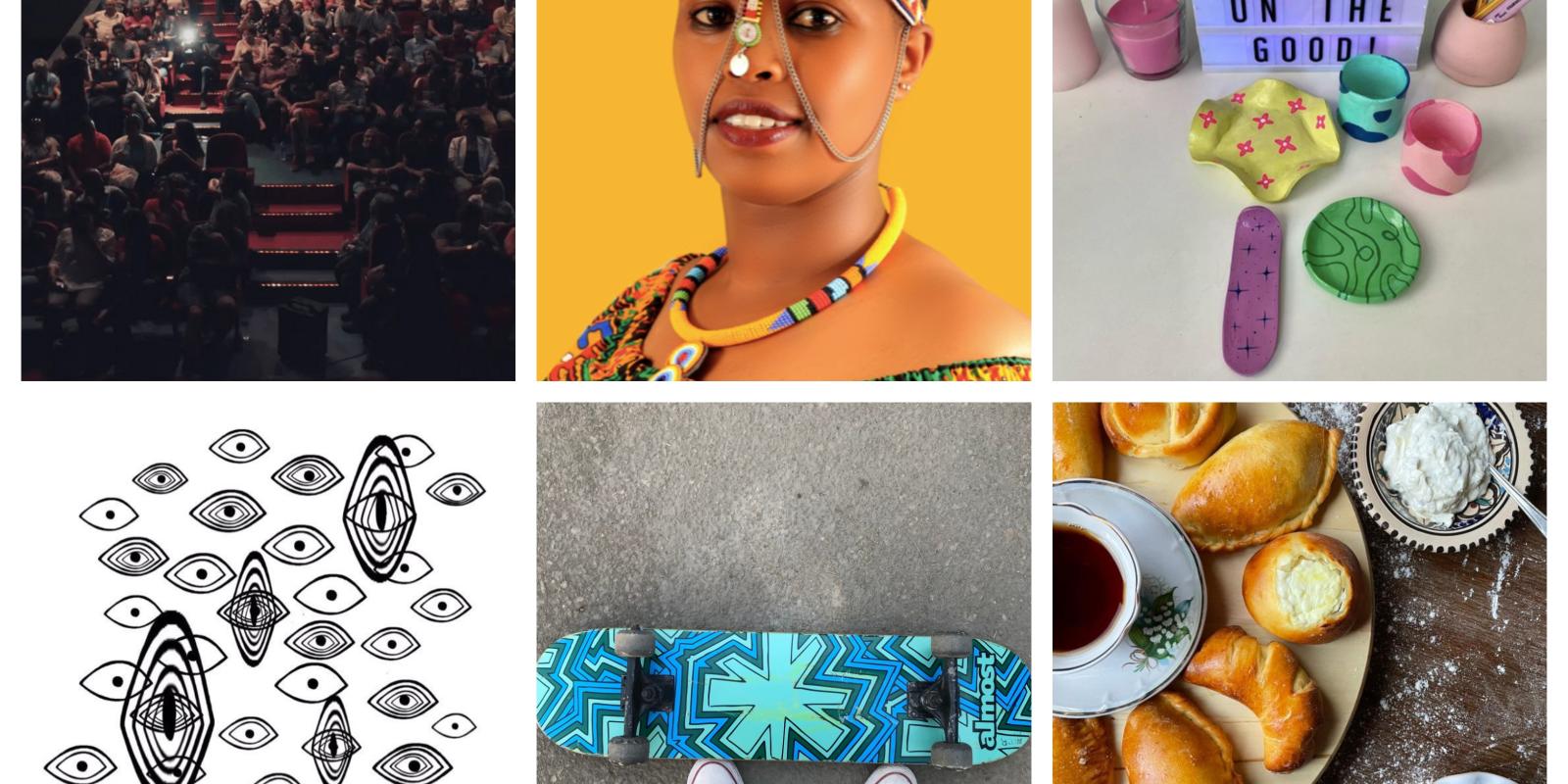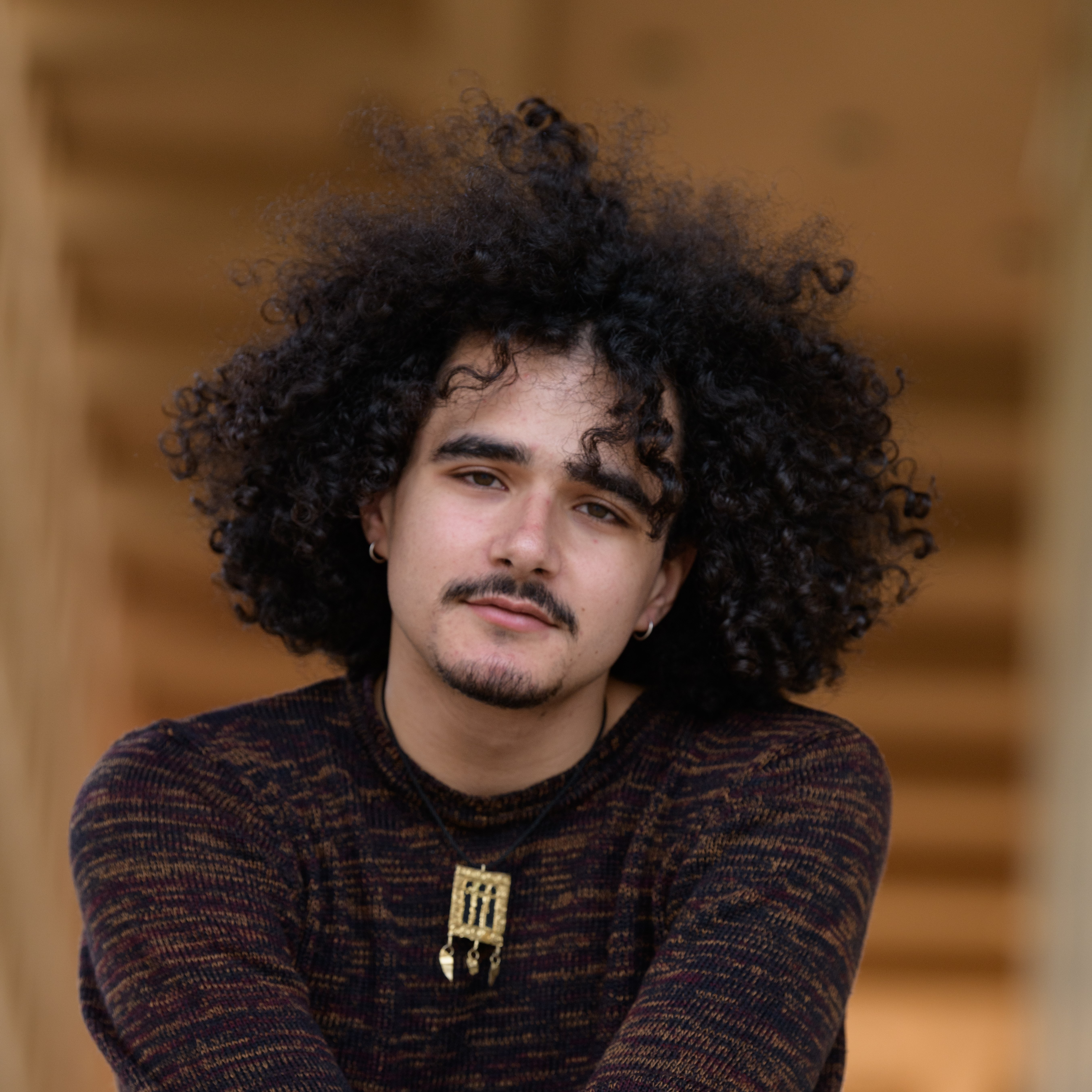
Student Research Sheds Light on Egypt's Online Communities
Creating more connections between AUC and the local community, Emiko Stock, assistant professor of anthropology, tasked two of her classes last fall — Introduction to Digital Ethnography and Anthropology and Film— to conduct digital ethnographies of Egypt’s online communities and groups of creators in the country.
Students in Introduction to Digital Ethnography chose various online communities to investigate, while those in Anthropology and Film contacted groups of creators, including vloggers, writers and content creators, in order to better understand their motives. Topics ranged from costume designers and skateboarding to safe spaces and unfinished screenplays.
“The idea was for students to develop an understanding and familiarity with something that they think they’re already familiar with,” she explained. “That's the whole idea of anthropology — to make the strange feel familiar or to make the familiar feel strange.”
Salma Naguib, an anthropology senior, tracked several online recipe groups for her project. “I wanted to see the contrast between social identities, perceptions and the consumption of food in Egyptians,” she explained.
The project, she asserted, allowed her a different view of Egyptian society.
“Interviewing people and seeing restaurants that I’ve never seen before provided not only a fresh perspective on the differences and similarities among Egyptians, but also [revealed] gender difference, social class difference and age difference when it comes to food consumption.
Another student, anthropology major and film minor Walid Zarrad, enrolled in both courses. While each project differed greatly from the other in content — one examined how an online group dedicated to discussing dreams and meditating was able to create a safe environment for participants, and the other explored the motives behind commercial filmmakers — he found that some of his overall perceptions too were changed as a result of this work.

“The challenge was for me to see my ideas and preconceived ideas during the interviews,” he noted. “For example, [in the online communities project] I thought of safety in terms of anti-discrimination and accessibility in terms of money and internet connection. While the group facilitators shared these ideas, they also spoke of accessibility issues experienced by people with disabilities and people with mental health concerns, and safety in terms of comfort and being able to share one’s thoughts.”
On Zarrad’s website for this project, the sophomore concludes that the definition of terms like safety and accessibility are fluid and can vary depending on differences in culture and background.
Perceptions were not the only thing challenged throughout this project. Stock’s students also gained hands-on experience in conducting interviews and website creation, two elements that required them to adhere to strict deadlines, be adaptable and utilize new technology.
“The rule of any ethnographic work is that it never goes according to plan,” Stock explained, stressing the importance of building “a skill set that relies on improvisation and problem solving.”

Both students noted that these projects differed greatly from what they were used to, as every aspect was conducted entirely online.
“It was a first — presenting a project in the form of a blog and meeting my interlocutors online,” Naguib said.
Stock added: “Hopefully, the students can reproduce this experience at any point in their career, whether they join a marketing company, a design collective, an NGO or a think tank. They need to master those tools not only from a digital point of view, but also to understand their worlds and other worlds a little better.”
Check out student projects from Introduction to Digital Ethnography here.